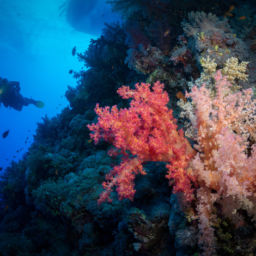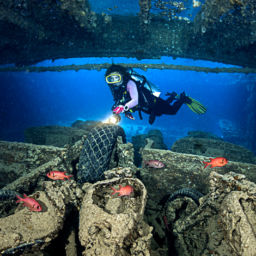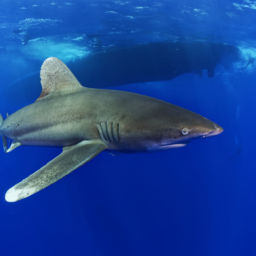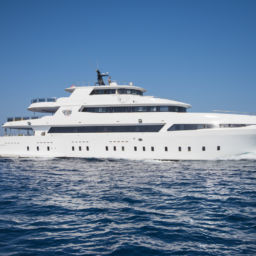The Brothers Islands, a premier Egypt diving destination, have re-opened after a 3.5 month closure which followed four non-fatal shark-bite incidents involving oceanic whitetip sharks. Authorities hope the closure has returned the sharks to their normal behaviors and away from congregating around dive boats.
What caused the shark bites?
Authorities believe a number of factors caused the the sharks’ changing behavior:
- Deliberate and accidental feeding of sharks in the area
- Illegal fishing activities nearby
- A lack of understanding of how to interact safely with sharks
Changed rules
The Chamber of Diving and Water sports (CDWS) released a statement on March 15th with a new list of rules for all liveaboard diving operators:
‘All dive operations CDWS members must abide the provisions mentioned in the Governor decree as follows:
- Boats may not stay overnight in the Brother Islands. The implementation of diving activities will be only from 6AM till 4PM, after which all boats should leave.
- The daily maximum capacity of boats on the Brothers Islands are 18; 12 boats for Big Brother and six for the Small Brother. This is only during the time mentioned in item No. 1.
- For safari boats to apply for a sailing permit to visit Brothers Islands, first they must get a coordination record with CDWS through this link. They must be able to present it to the coast-guard office of the Red Sea governorate.
- It is totally forbidden to dump any organic waste in the area of Brothers Islands. It should be dumped in open water by a sufficient distance for at least five nautical miles.
The new rules address shark-feeding at the islands. Although it is already illegal to dump organic waste here, authorities hope the new rules will further prevent boats from dumping waste like kitchen leftovers.
Without food in the water, the sharks are more likely to stay relaxed, rather than focusing on potential food sources.
The concerns around safe shark diving have also been tackled. CDWS required all liveaboard operators and dive guides to undergo a shark-awareness course to improve their understanding.
Further updates will be provided if and when they become available.
Divers and writers at LiveAboard.com contributed this article and images.






